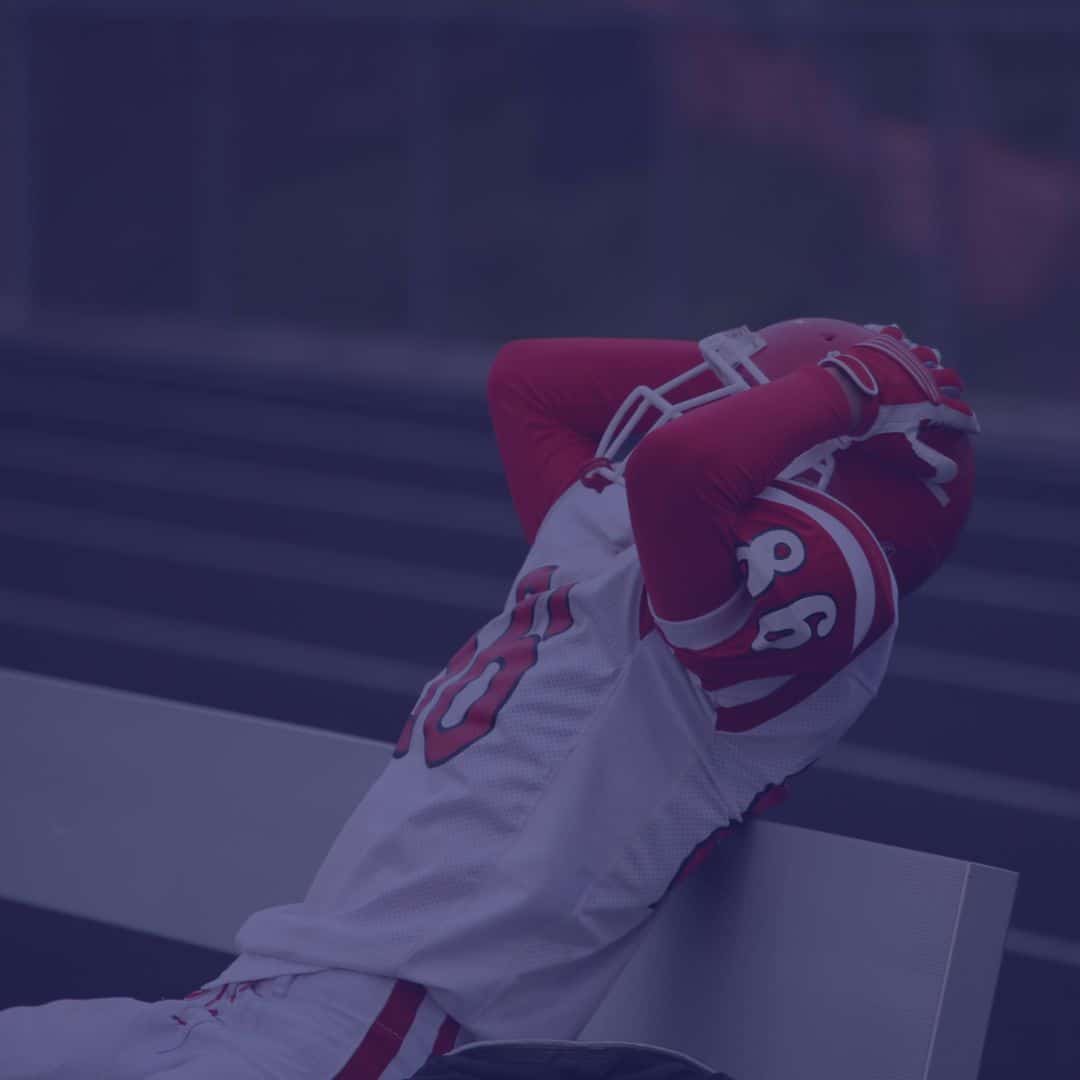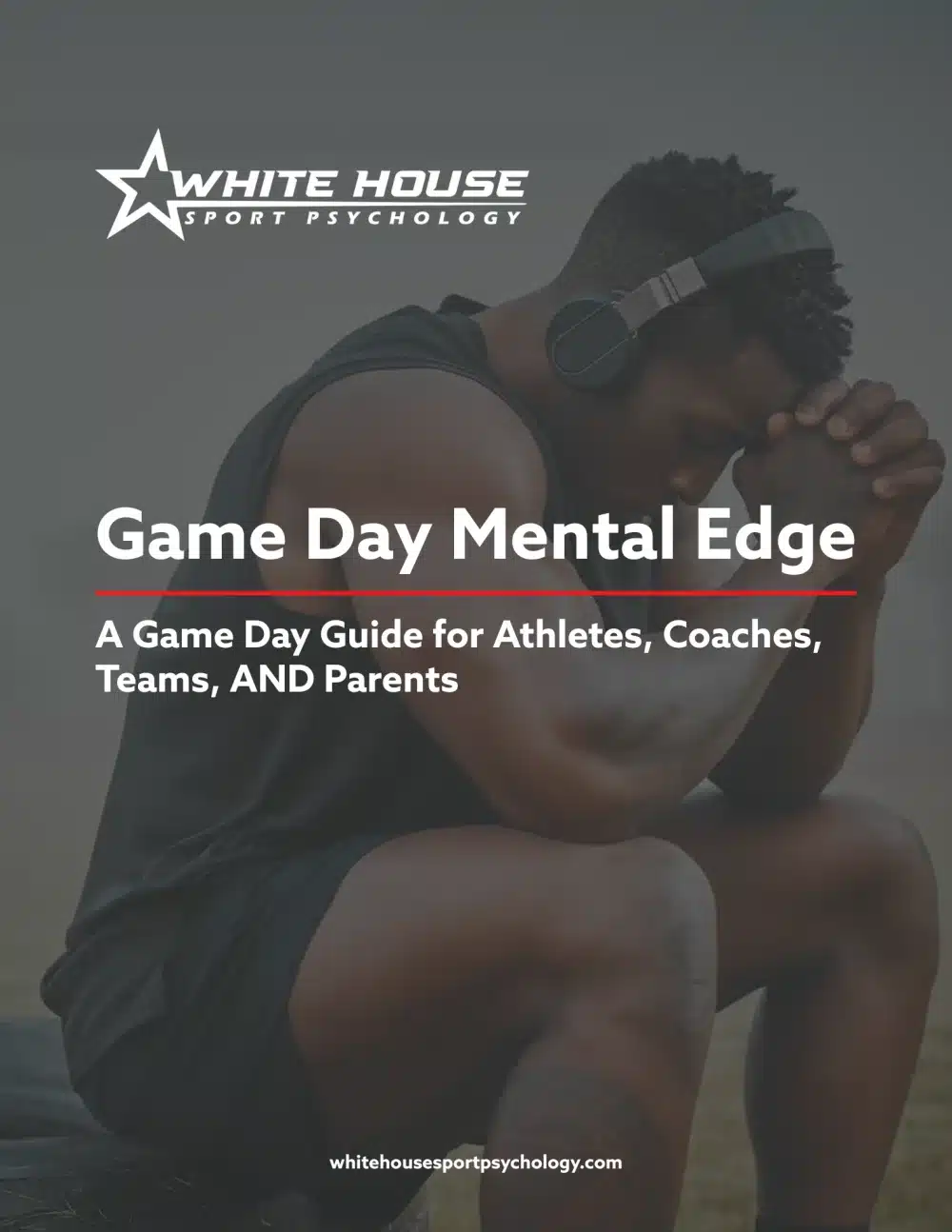Grief doesn’t care about an athlete’s practice schedule.
It doesn’t wait for the off-season, and it doesn’t disappear when the whistle blows.
No matter who you are, losing someone close to you—a teammate, a coach, a parent, a friend—hits hard. And in the fast-paced world of competitive sports, where toughness is praised and time is limited, knowing how to navigate the weight of that loss while still showing up can feel impossible.
We get it. That’s why we created Your Person, Your Journey—a grief guide written specifically for the sports community.
Why Grief in Sports Feels So Isolating
In sports, the culture often rewards pushing through hard times, injuries, loss, etc. Athletes are trained to perform no matter what. But when grief enters the picture, that mindset can leave athletes and coaches feeling disconnected, overwhelmed, or numb.
It’s not that athletes aren’t feeling deeply. It’s that they often aren’t given the space to feel.
- Athletes may not know how to talk about what they’re going through.
- Coaches might struggle with what to say—or feel pressure to “hold it all together.”
- Teams may be hurting silently, unsure of how to support each other.
Signs an Athlete May Be Grieving (Even if They Don’t Say It Out Loud)
Grief doesn’t always show up as tears. For athletes, it can look like inconsistent performances, lack of motivation, sudden changes in mood, or difficulty concentrating in practice or competition. Coaches and teammates might chalk it up to a “slump,” but beneath the surface, there may be something much deeper going on.
A powerful example of this is Olympic sprinter Letsile Tebogo of Botswana. In May 2024, just months before the Paris Olympics, he experienced the sudden loss of his mother. In the lead-up to the Games, Tebogo shared that his training had been inconsistent because her death had hit him so hard.
“I believe there is a medal in these legs and it only needs the determination and the willpower to do it,” he said shortly before competing.
His words reflect the weight he carried—not just in his body as a world-class athlete, but in his heart. They remind us that even the most elite performers are not immune to grief’s impact.
When we see an athlete struggling in ways that seem out of character, it’s worth asking what’s going on in their world?
4 Simple Ways to Support Yourself, Your Athlete, Coach or Team during Times of Grief
- Normalize the conversation.
Let athletes know it’s okay not to be okay. Acknowledge the loss out loud. Whether you’re a coach, captain, or parent, giving permission to grieve opens the door for healing. - Make room for reflection.
Grief doesn’t follow a timeline. Carve out small moments—such as at the end of practice, or at a team meeting—to allow space for quiet reflection, journaling, or simply being together. - Offer structured support.
Open-ended conversations can be hard. That’s why we created Your Person, Your Journey—a guided resource filled with athlete-minded prompts and exercises designed to help the reader process grief in a clear, approachable way. - Be strategic about returning to play.
Healing from a loss isn’t simply a matter of “bouncing back”. It’s about learning how to move forward in a productive and helpful way. It’s about transforming your grief into strength, compassion, and connection. Let athletes know that their mental and emotional health matters just as much as their physical performance.
A Grief Guide Designed for Athletes, Coaches, and Teams
Grief is one of life’s most formidable opponents—unpredictable, overwhelming, and often without a playbook. This guide is here to help.
Your Person, Your Journey is a thoughtful resource for:
- Athletes looking for a private, powerful space to reflect and heal
- Coaches who want to support grieving players but don’t know where to start
- Teams navigating loss and longing to feel united again
This isn’t about “getting over it.” It’s about honoring what’s been lost while continuing to move forward—on your terms.
Already Impacting Families and Programs Alike
One parent of four teen athlete athletes recently shared after purchsing:
“We dealt with the death of a teammate and there wasn’t much out there to help us understand how to process it. I’m so thankful for Dr. Tim’s book.
It acknowledges the unique pressure on competitive athletes to ‘perform through the pain.’ The exercises are perfect for teens—relevant to their athletic mindset.
If you’re raising or coaching competitive athletes, this belongs on your shelf.”
Whether your program is currently walking through grief or simply wants to be prepared, this is a powerful resource to have on hand.
Take the First Step Toward Healing Today
If you’re part of a sports community that’s hurting, please know this: you don’t have to go through it alone. Healing can start right where you are—playing your sport, in the weight room, in the team huddle.


